On the latest episode of Queens, Kings and Dastardly Things, Royal biographer Robert Hardman reveals a striking parallel between the weddings of Prince Harry and Meghan Markle and Edward and Wallis Simpson.
The episode, the second instalment in a new podcast miniseries examining the ‘objectionable’ lives of the first celebrity Royal couple, focuses on how the British establishment turned its back on Edward and Mrs Simpson following the King’s abdication.
Edward abdicated under the mistaken belief that he and his twice-divorced bride would be permitted back into the Royal fold.
The Duke of Windsor expected his new wife to receive the royal titles and privileges due to a former King’s bride.
During preparations for their June 1937 wedding, it became apparent that Mrs Simpson would never gain full Royal status and that the couple faced complete exile from the family.
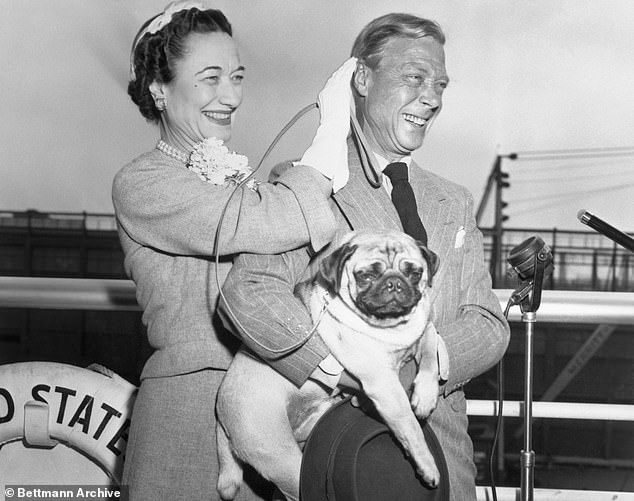
Edward abdicated under the mistaken belief that he and his twice-divorced bride would be permitted back into the Royal fold
The Wedding of Edward and Wallis Simpson
After failing to convince the government and Commonwealth to accept Mrs Simpson as Queen, Edward abdicated on December 11, 1936.
Simpson was deemed unacceptable because she was an American divorcée with two living ex-husbands, which violated both the Church of England’s stance on divorce and the constitutional requirement that the monarch be the head of that church.
The crown passed to Edward’s brother George VI, who made him Duke of Windsor. Edward then fled to Europe while Simpson’s divorce from Ernest Simpson was finalised.
The former King reportedly felt relieved, ‘liberated’ from the great burden of the crown.
As Mail Columnist Robert Hardman explained: ‘Winston Churchill was said to have been in tears when he listened to the announcement of the abdication on the radio.
‘One man who was not in tears was the King himself. His view was that the crown had been a terrible burden and that now, he was, in a sense, liberated.
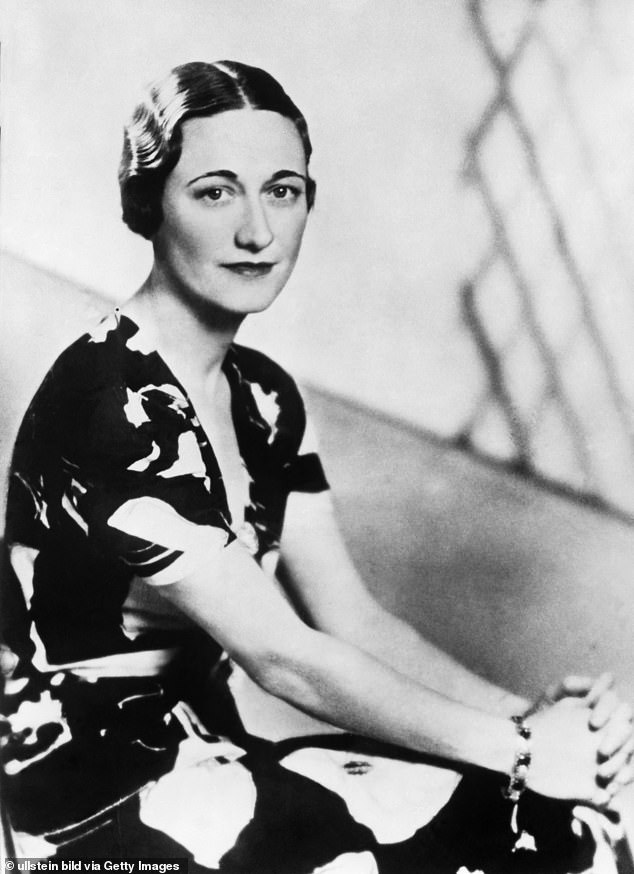
Simpson was deemed unacceptable because she was an American divorcée with two living ex-husbands

Planning his wedding to Mrs Simpson, any hopes Edward had of retaining some form of Royal power were dashed
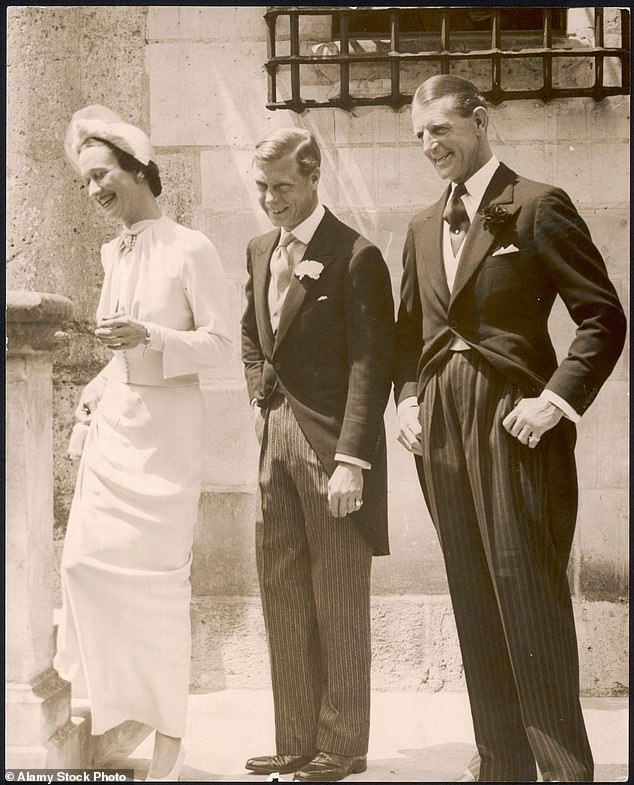
The new King, on the advice of the government, pressured members of the Royal family and aristocracy not to attend the wedding
‘Edward believed he could continue being much loved without any of the hassle of going about his Royal duty.’
‘He was definitely deluded – Edward failed to understand that the nation moves on quite quickly. They were a serious threat to the institution they had left behind.’
Planning his wedding to Mrs Simpson, any hopes Edward had of retaining some form of Royal power were dashed.
George VI forbade his brother from returning to England, forcing the couple to celebrate their union in France.
The Church of England also refused to sanction the marriage, leaving an obscure clergyman, Robert Anderson Jardine, to conduct the service.
On top of this, the new King, on the advice of the government, pressured members of the Royal family and aristocracy not to attend the wedding.
‘Edward hoped to have lots of members of his family there’, Hardman began.
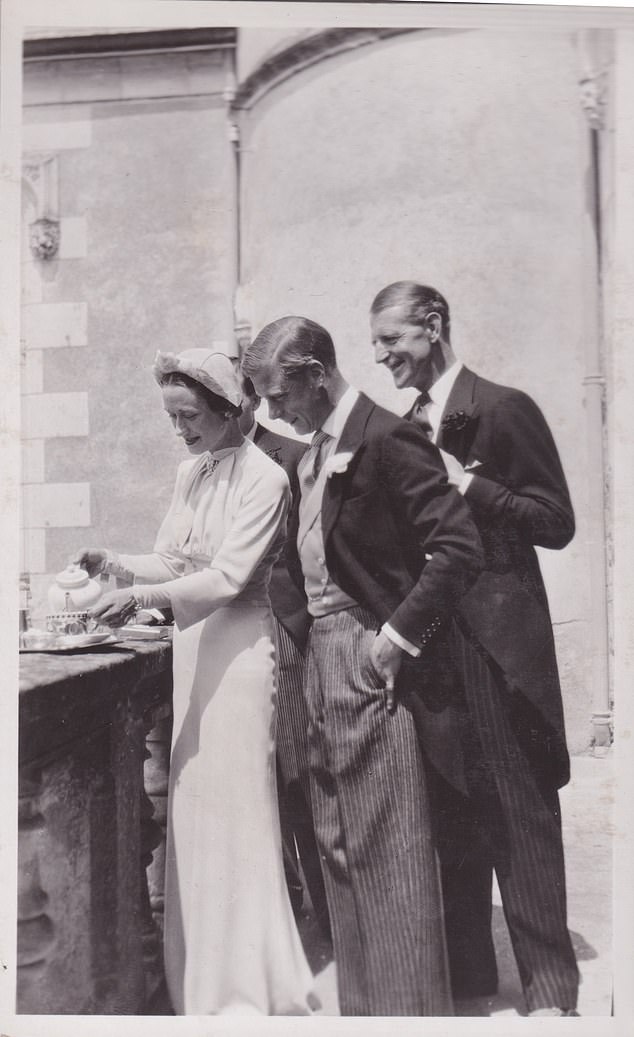
The government’s opposition to senior British establishment figures attending was not solely born out of spite
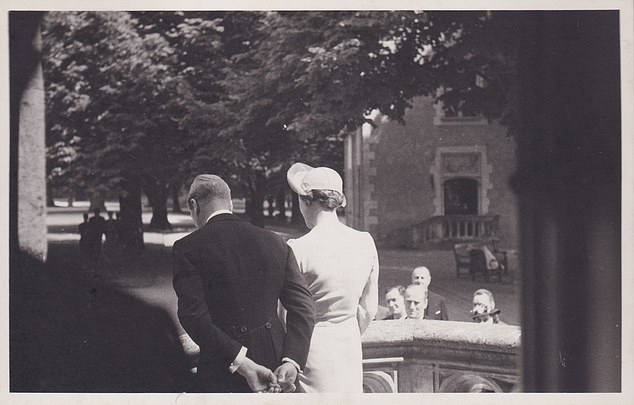
Officials knew that within Britain and across the Empire, there would be outrage at the prospect of Simpson being honoured as a full Royal
‘But he’s told – they are not coming at all. George VI and Queen Elizabeth send a telegram – but that’s it. They told all the other Royals they were not to attend.
‘Dickie Mountbatten, always trying to ride two horses at once, writes to Edward saying he does want to be there, but the King won’t let him.
‘Even members of the aristocracy are told they cannot turn up. For example, Ulik Alexander, keeper of the Privy Purse and a great friend of Edwards is told he will lose his position if he attends.
‘There’s a lot of establishment pressure to completely boycott and ostracise this event. In the end, only seven British guests are in attendance.’
The government’s opposition to senior British establishment figures attending was not solely born out of spite.
Officials knew that within Britain and across the Empire, there would be outrage at the prospect of Simpson being honoured as a full Royal.
If the wedding resembled a state occasion, there were fears it might embolden Mrs Simpson to use the title Her Royal Highness.
Hardman told the podcast: ‘There is very strong pressure, from the other realms and dominions – that people do not want Simpson given Royal status.
‘If she’s made Her Royal Highness, people would have to curtsy to her. That cannot happen.’
The event was equally poorly attended on the bride’s side, leading the Royal biographer to draw a comparison with Harry and Meghan’s wedding some 80 years later.
Hardman said: ‘Wallis had one member of her family there, her aunt Bessie. This slightly echoes Harry and Meghan’s wedding in 2018, where only Meghan’s mother attended.’
To hear more stories of historical Royal gossip and court intrigue, listen to Queens, Kings and Dastardly Things now, wherever you get your podcasts. New episodes are released every Thursday.












